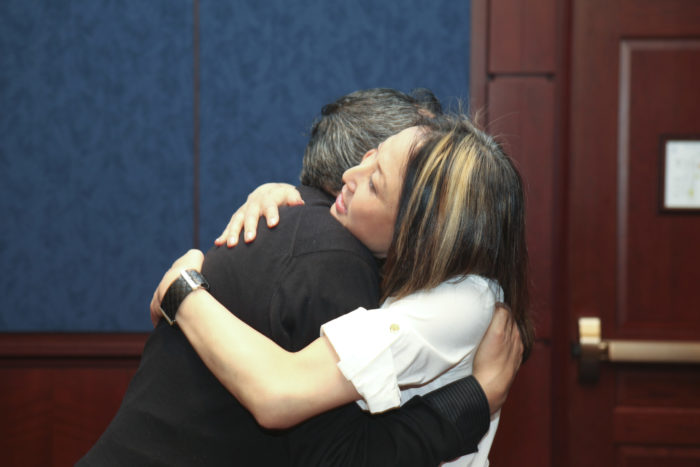Celebrating the Movement to End Prisoner Rape
This year marks JDI’s 40th anniversary! To celebrate, we highlighted a different milestone every day for 40 days — one for every year since our founding.
- Day 1
The Anniversary of the Prison Rape Elimination Act
On September 4, 2003, the landmark Prison Rape Elimination Act was signed into law. Tom Cahill, JDI’s former President and a survivor whose tireless advocacy paved the way for the law’s passage, attended a signing ceremony with President George W. Bush and Senator Ted Kennedy, a PREA co-sponsor in the Senate.
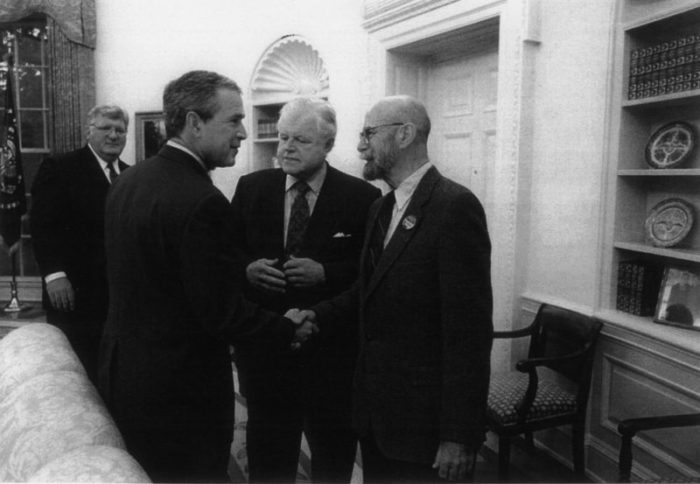
- Day 2
JDI’s Founding
JDI was founded in 1980 by a prisoner rape survivor named Russell Dan Smith. Smith served as Executive Director, and his friend and fellow advocate Barry Mehler serves as Secretary. The group was known as People Organized to Stop the Rape of Imprisoned Persons, or POSRIP.

- Day 3
Tom Cahill Takes Up the Mantle
In 1982, an activist and survivor named Tom Cahill reads about JDI in a newspaper column. Tom is inspired by JDI’s mission and seeks to join the organization, but is unable to locate Russell Dan Smith. Fearful that the organization might go defunct, Tom takes over as Director. For several years, Tom ran JDI out of a beat-up camper van — JDI’s first “office.”

- Day 4
Donny the Punk Joins JDI
In 1985, Stephen Donaldson, a legendary gay rights activist and survivor of countless rapes behind bars, joined JDI as its East Coast Director. Donaldson, aka Donny the Punk, was elevated to the position of Executive Director in 1991, with Tom serving as President; Donny’s apartment in Manhattan’s Morningside Heights neighborhood became the group’s de facto headquarters.
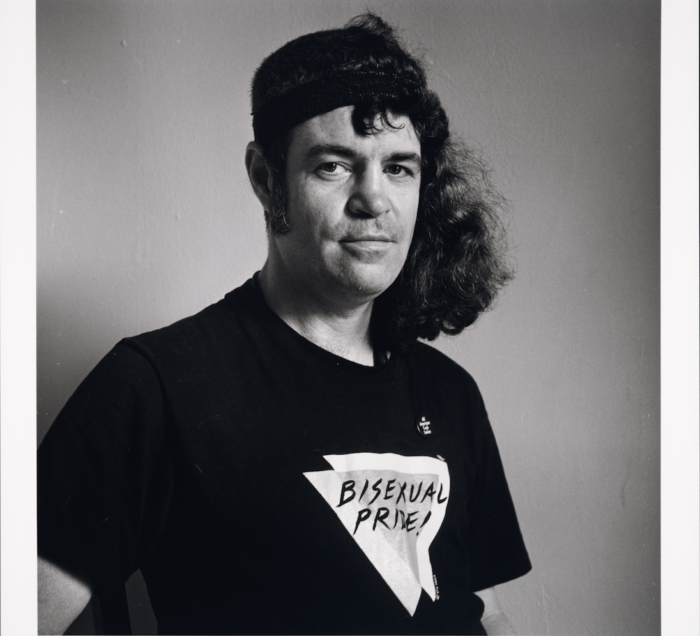
- Day 5
SPR on the Web
Under Donaldson’s leadership, the organization launched a robust website in 1994 — a time when even many media organizations had no web presence. The site’s chief architect was Ellen Spertus, a computer scientist and supporter of the organization.
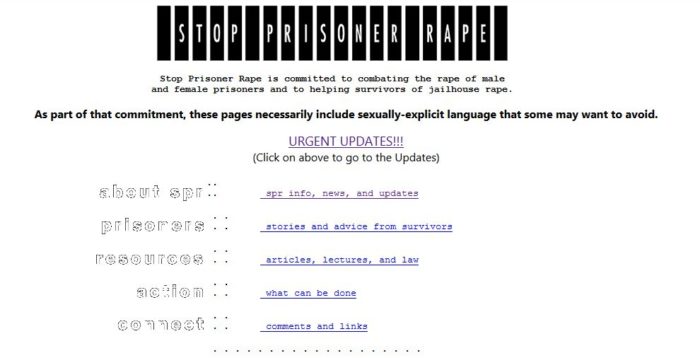
- Day 6
JDI’s First Survivor Summit
In 2007, JDI held a Survivor Summit, in Los Angeles. The first event of its kind, the summit brought together survivors from across the country to share their stories and hone their advocacy skills. The survivors also developed their own set of policy recommendations for the National Prison Rape Elimination Commission.
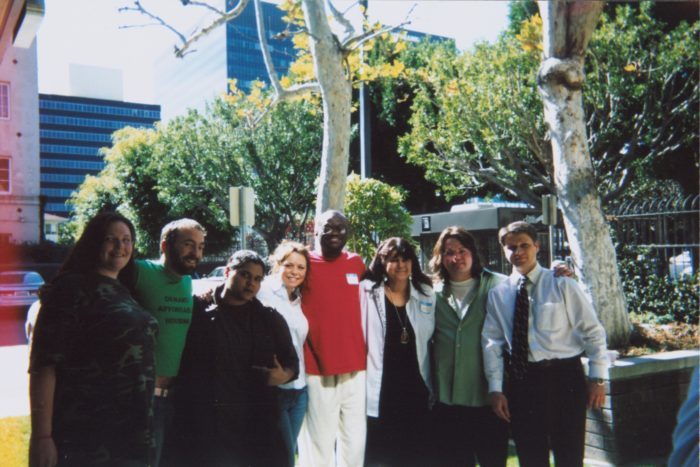
- Day 7
The Creation of JDI’s Survivor Council
In 2008, JDI created its Survivor Council, a formal advisory board made up of currently and formerly incarcerated survivors who are dedicated to fighting for every person’s right to be free from sexual abuse. The Survivor Council remains at the forefront of our work, serving as media spokespeople, as policy analysts, and as our expert trainers on how to run safe prisons and jails.
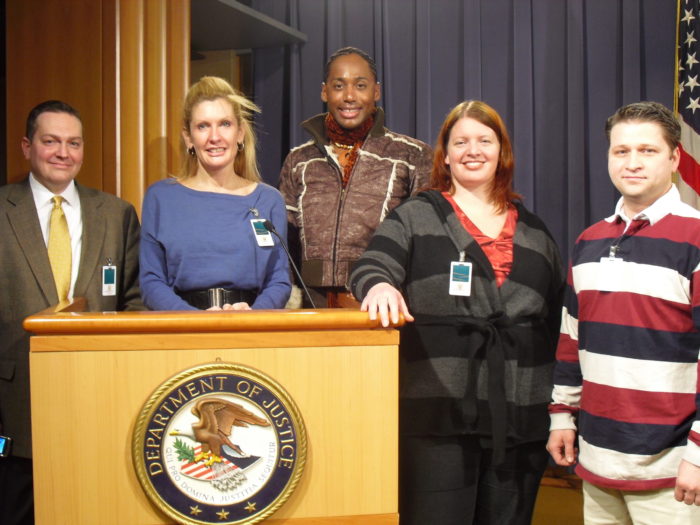
- Day 8
Survivors Demand Action
In June 2003, at a historic, JDI-organized rally on Capitol Hill, a group of prisoner rape survivors told their stories of abuse and urge lawmakers to pass the Prison Rape Elimination Act. The event, called Stories of Survival, was crucial in leading to the law’s passage.
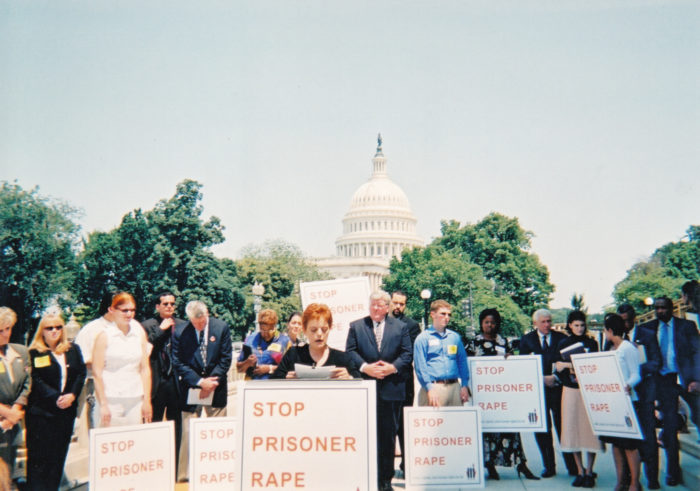
- Day 9
A Lifeline for Survivors
In 2003, JDI created a Resource Guide for Survivors of Sexual Abuse Behind Bars, the only listing of community organizations that provide legal and counseling services to incarcerated survivors. Since its publication, JDI has mailed the guide to thousands of incarcerated survivors who reach out to the organization for help each year.

- Day 10
Fighting for LGBT Rights
Backed by leading LGBT rights organizations, JDI releases Call for Change, a set of policy proposals to address the rampant abuse facing this population in U.S. prisons and jails.

- Day 11
An Opportunity in South Africa
In 2004, a group of dedicated officials at a notorious prison in Cape Town, South Africa, contacted JDI for advice on stopping sexual abuse in their facility. The resulting collaboration between JDI and the group — known as Friends Against Abuse — marked the beginning of JDI’s work in South Africa.
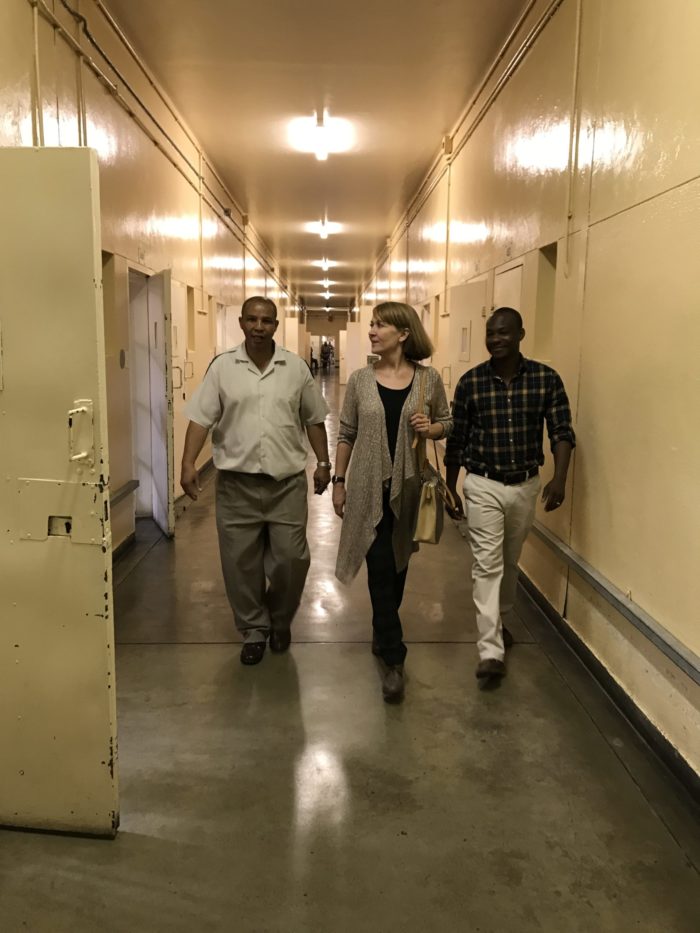
- Day 12
Linda McFarlane Becomes JDI’s Executive Director
After a 16-year run — during which JDI emerged as the undisputed global leader in stopping prisoner rape — Lovisa Stannow steps down as Executive Director. The Board names Deputy Executive Director Linda McFarlane the next Executive Director. A trained social worker with decades of experience working with survivors, Linda spearheaded JDI’s groundbreaking initiatives to prevent and respond to sexual abuse inside detention facilities.
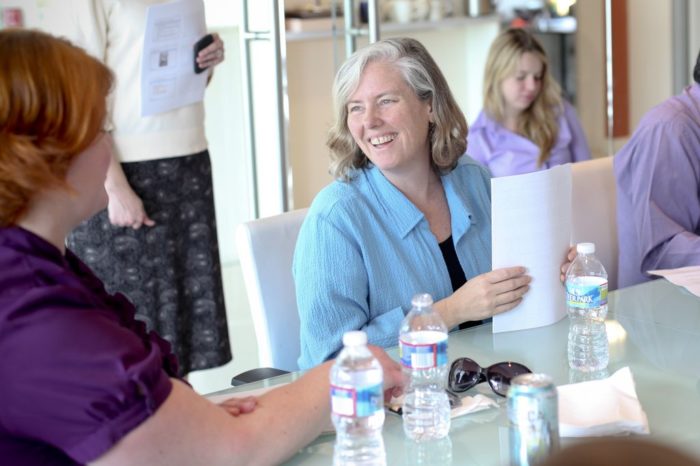
- Day 13
Bringing Rape Crisis Counseling to Prisons
In 2004, JDI developed Paths to Recovery, a groundbreaking program that, for the first time, brings community rape crisis counselors into prisons in California to provide confidential services to incarcerated survivors. The project’s success proves that it is possible for outside experts to give lifesaving support to people who are incarcerated.
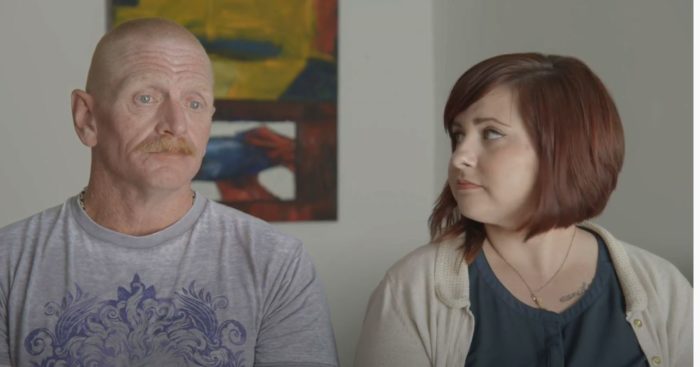
- Day 14
Prisoner Rape and the War on Drugs
In 2007, JDI published Stories from Inside, an eye-opening report on the devastating link between the war on drugs and sexual abuse in detention.

- Day 15
Raising the Bar
In 2010, JDI founded the Raising the Bar Coalition, a partnership of more than 60 organizations from all points on the political spectrum, including leading progressive advocacy organizations and conservative faith-based groups, united in support of strong national standards to address sexual abuse in detention.

- Day 16
JDI-SA Opens Its Doors
In 2013, JDI-South Africa (JDI-SA) is established as an independent organization to build on the work that JDI began in South Africa in 2004.

- Day 17
#PrisonersToo
During the #MeToo movement, JDI leads the push to ensure that the prisoner rape crisis is included in the global reckoning with sexual violence.

- Day 18
A Landmark Case
In 1994, JDI submitted an amicus brief to the Supreme Court on behalf of Dee Farmer, a transgender woman who was raped in a federal prison. Dee won the right to sue the Bureau of Prisons for not protecting her, and today the Farmer decision stands as a landmark in the fight for the right of survivors to seek redress from government officials. The Court’s decision also included a line that inspired JDI’s slogan: Rape is not part of the penalty.
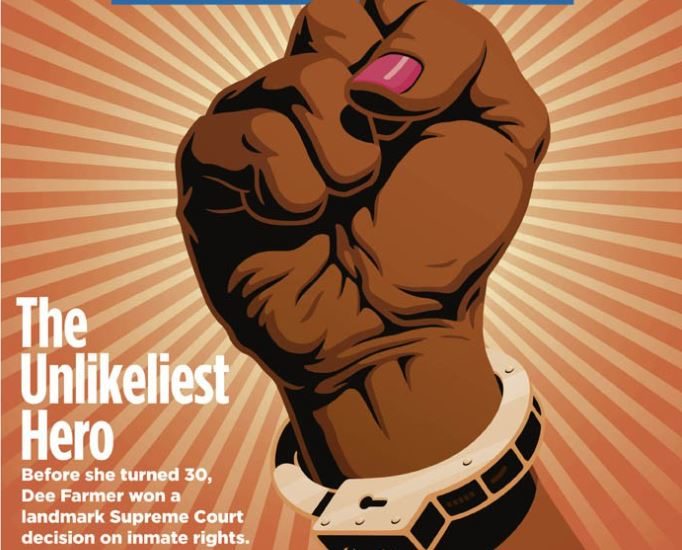
- Day 19
Victories on Capitol Hill
In 2018, JDI scored impressive legislative wins with the passage of two laws: the Parole Commission Extension Act, which strengthened prison oversight, and the First Step Act, which improved conditions inside women’s prisons.
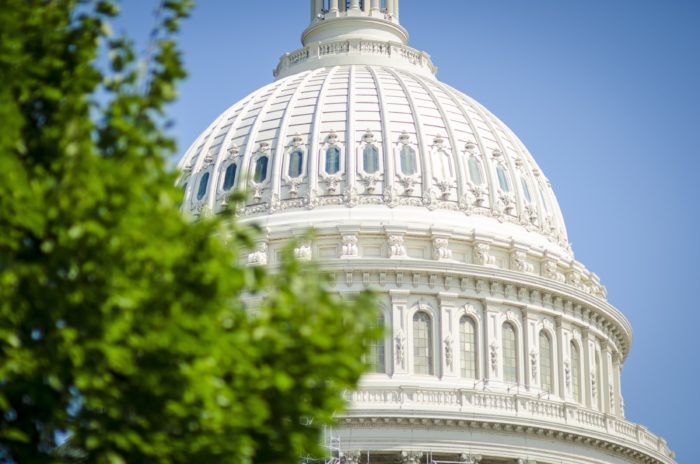
- Day 20
The Seeds of PREA
Representative Frank Wolf played a major role in leading the bipartisan push in Congress to pass legislation to end the crisis of rape behind bars. In 2002, with Representative Bobby Scott as a co-sponsor in the House and Senators Ted Kennedy and Jeff Sessions as sponsors in the Senate, Wolf introduced the Prison Rape Reduction Act, a bill that would become the Prison Rape Elimination Act.
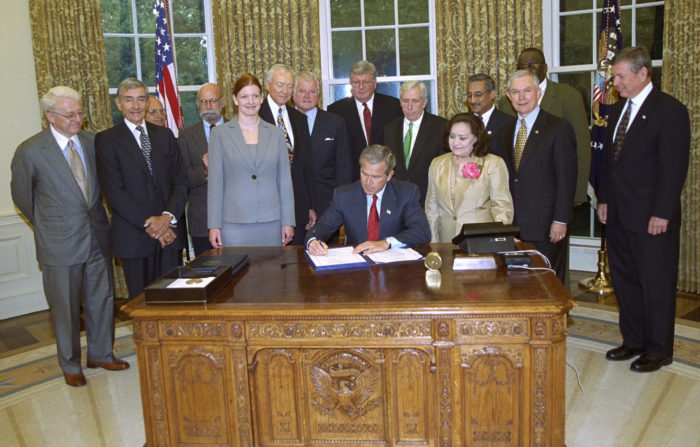
- Day 21
Leaders on the Inside
In 2010, JDI created an innovative project in two California state prisons that gives prisoners a leadership role in sexual abuse education. Today, peer education is now recognized nationally as one of the most effective ways to teach prisoners about their right to be safe and to transform the culture of prisons.
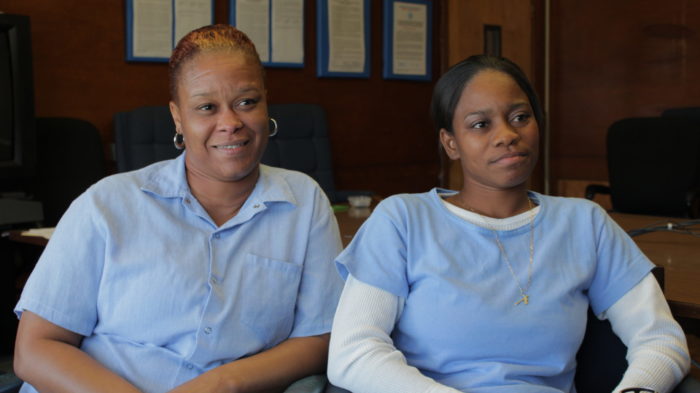
- Day 22
The PREA Standards
Thanks to pressure from JDI and a coalition of survivors and advocates, in 2012 the Department of Justice finalized the national standards to address sexual abuse in detention. Binding on prisons, jails, youth facilities, police lockups, and community corrections, the standards represented a marked improvement over the Department’s previous draft, and include lifesaving reforms long championed by JDI.

- Day 23
A Bold Project in Miami
In 2011, JDI embarked on a bold initiative to help Miami-Dade County turn around its huge and troubled jail system. Together, JDI staff and the county’s corrections leaders put in place lifesaving reforms, focusing on LGBT inmate safety, confidential support services for incarcerated survivors, and inmate peer education programs.
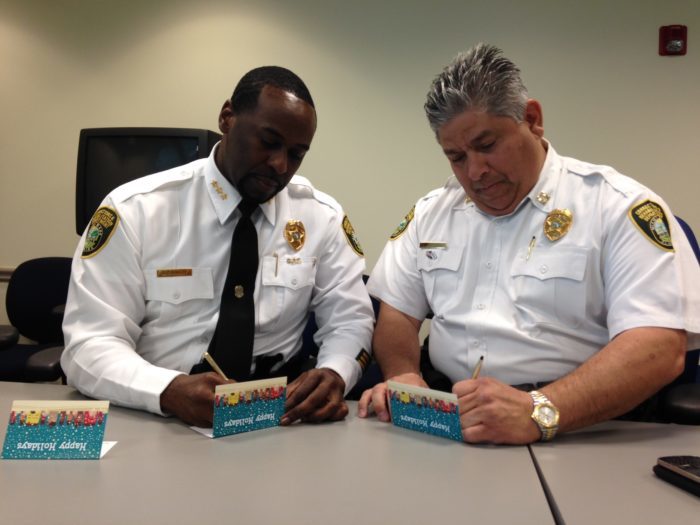
- Day 24
President Obama Speaks Up for Survivors
In 2015, at a speech in Philadelphia, President Barack Obama decried sexual abuse in detention and issued an impassioned call for an end to jokes about rape in prison.
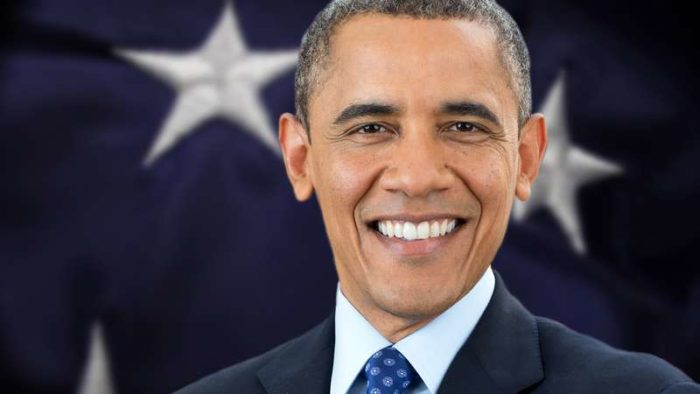
- Day 25
All Survivors Deserve Counseling
In 2015, after a decades-long battle, JDI wins the fight to overturn a federal rule that blocked rape crisis centers from using Victims of Crime Act grant money to work with prisoners.

- Day 26
A Breakthrough in South Africa
In 2017, the South African Department of Correctional Services commits to rolling out a nationwide policy to tackle sexual violence. JDI, which drafted the policy and pushed for its adoption, embarked on a bold project to implement the policy in ten prisons.

- Day 27
An Inside Line
In 2018, JDI launched a free and confidential crisis hotline for prisoners in Michigan. Called An Inside Line, it is the first-ever crisis hotline that is exclusively for incarcerated sexual abuse survivors.

- Day 28
A Victory for Free Speech — and Survivors
In 1996, JDI President Stephen Donaldson testified on JDI’s behalf in ACLU v. Reno, as part of a successful challenge in federal district court to provisions in the Communications Decency Act (CDA) that would have restricted access to powerful survivor testimony on JDI’s website. In a ruling handed down the following year, the Supreme Court decided that the CDA’s “anti- indecency” provisions were unconstitutional.
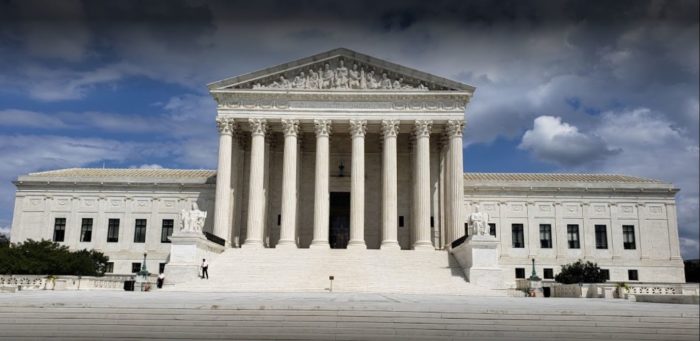
- Day 29
Blooming Within These Walls
In 2017, JDI began running art workshops inside the California Institution for Women (CIW), a prison outside of Los Angeles. The workshops form part of JDI’s groundbreaking wellness series at CIW, which include one-on-one and group counseling and classes on topics the women themselves have identified.

- Day 30
TV Spotlight on Prisoner Rape
In 1996, 60 Minutes aired an in-depth interview with Stephen Donaldson as part of the first-ever television feature on prisoner rape. Three months after the segment airs, Donaldson passed away from AIDS, having contracted HIV from the sexual assaults behind bars.
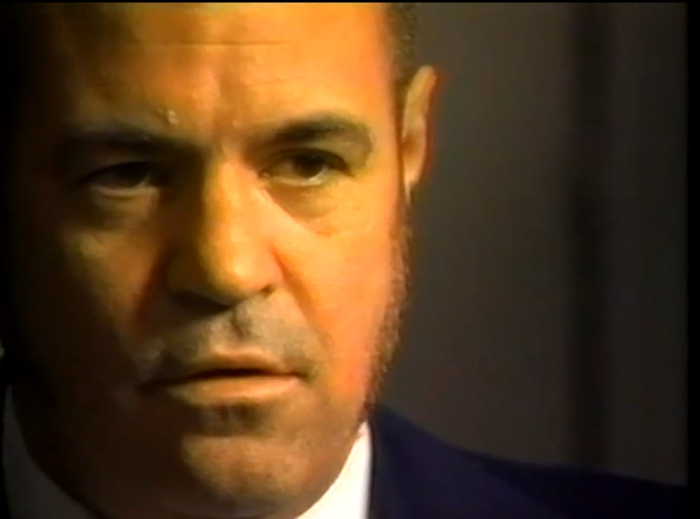
- Day 31
JDI in the New York Review of Books
In 2009, the first of David Kaiser’s and Lovisa Stannow’s eight-part series of articles was published in The New York Review of Books.

- Day 32
Stop Joking About Prisoner Rape
Backed by a coalition of nearly 100 human rights organizations, in 2002 JDI forced 7-Up to remove an appalling soda ad that made light of prisoner rape.
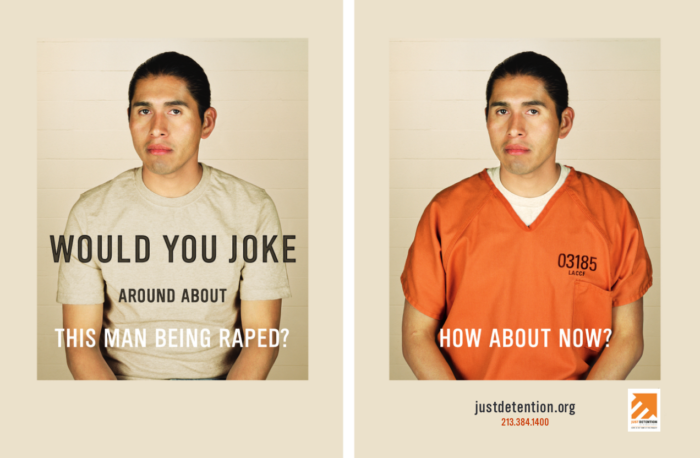
- Day 33
The Obama Memo
In 2012, on the same day the national PREA standards were released, President Barack Obama issued an executive memo ordering all federal agencies with confinement facilities — including immigration detention facilities — to adopt their own standards addressing sexual abuse.
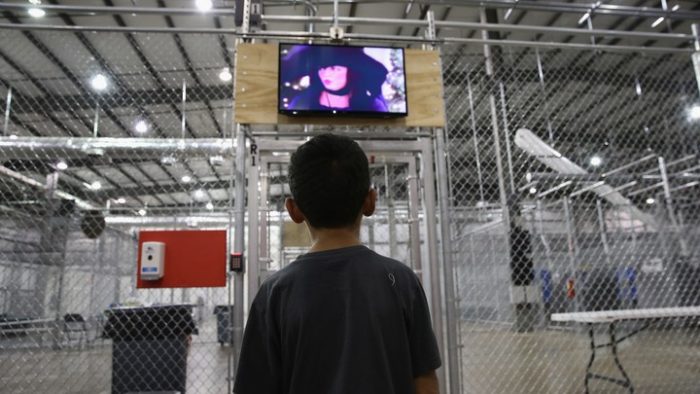
- Day 34
Survivors to DOJ: Stop Prisoner Rape
In 2010, in response to the Department of Justice’s unacceptably weak draft national standards, JDI mobilized advocates — including its Raising the Bar Coalition — and more than 100 currently incarcerated survivors to demand a tougher rule.

- Day 35
Words of Hope
In 2009, JDI launched Words of Hope, its lifesaving holiday card campaign that invites supporters to send inspirational messages to incarcerated survivors. Every year through Words of Hope, JDI delivers thousands of messages to survivors nationwide.

- Day 36
JDI’s Media Splash
In 2010, the New York Times ran an op-ed by JDI Executive Director Lovisa Stannow that spotlights the abject failure of PREA’s auditing system. A few weeks later, Rodney Roussell, a JDI Survivor Council member, was featured in a powerful short documentary on the Times’ website.
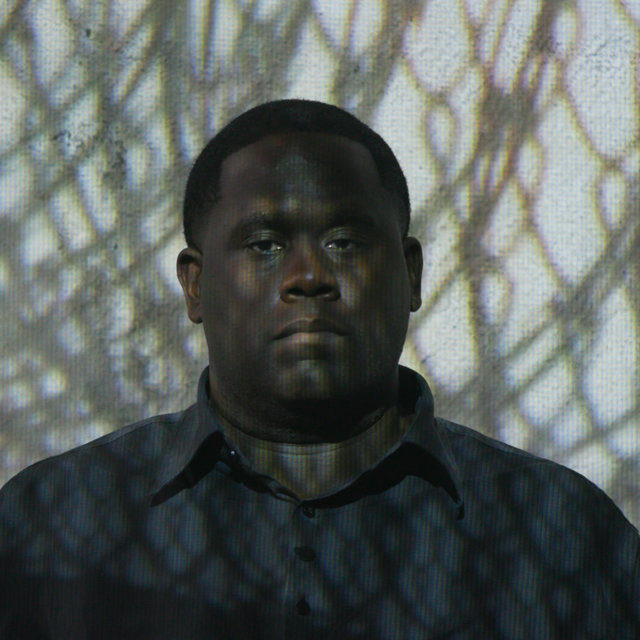
- Day 37
JDI’s Transition
In 2004, Lovisa Stannow, a human rights activist and journalist, became Executive Director. She would serve in that role for 16 years, the longest tenure of any ED in the organization’s history. She succeeded Lara Stemple, a human rights attorney whose hiring marked JDI’s transition from a volunteer-run network to a professionalized human rights organization.
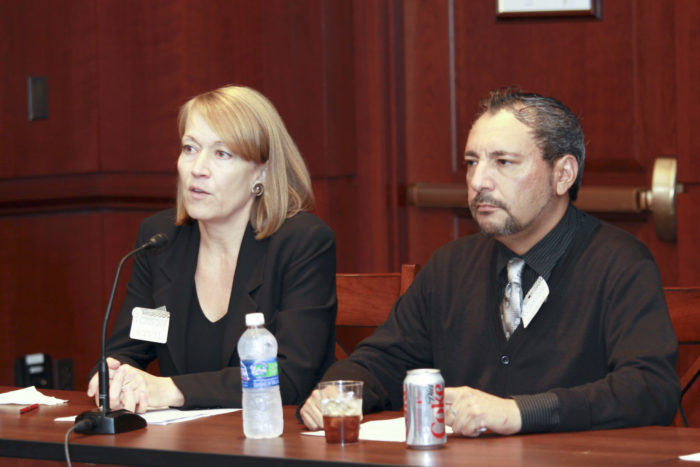
- Day 38
Honoring a Legend
After more than two decades, Tom Cahill steps down as President of JDI. Tom’s remarkable legacy includes the passage of PREA and overseeing the transition of JDI from a volunteer-run outfit to a human rights powerhouse. In a letter congratulating Tom on his retirement, Senator Ted Kennedy wrote, “Your willingness to speak out about your own tragic experience touched the conscience of the nation.”
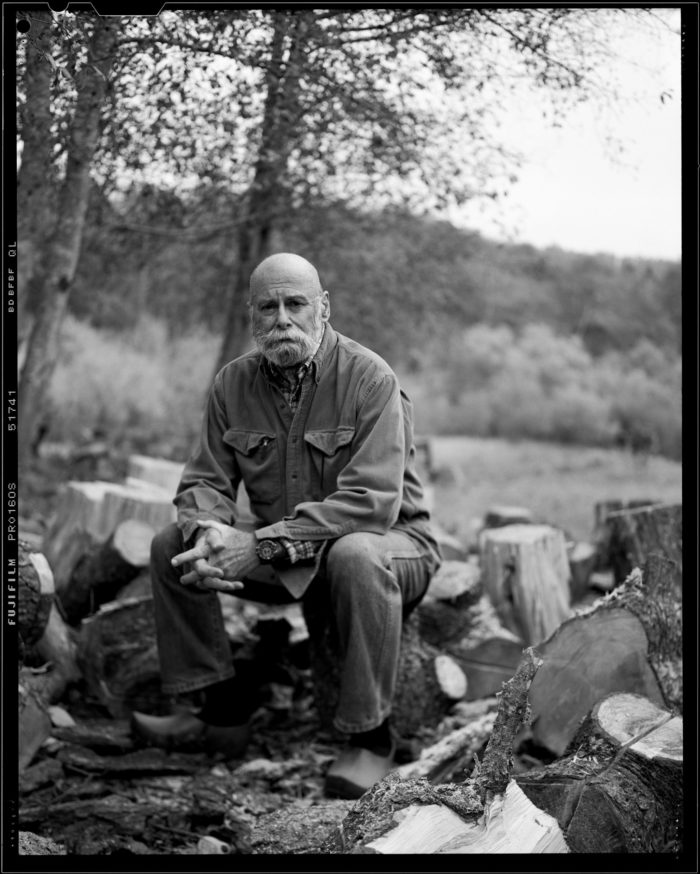
- Day 39
A New Board Chair
In 2007, David Kaiser was elected JDI’s Board Chair — a position he would hold until stepping down in 2019, after receiving a devastating cancer diagnosis. David was instrumental in raising the profile of JDI and in bringing the crisis of sexual abuse in detention into the public consciousness.
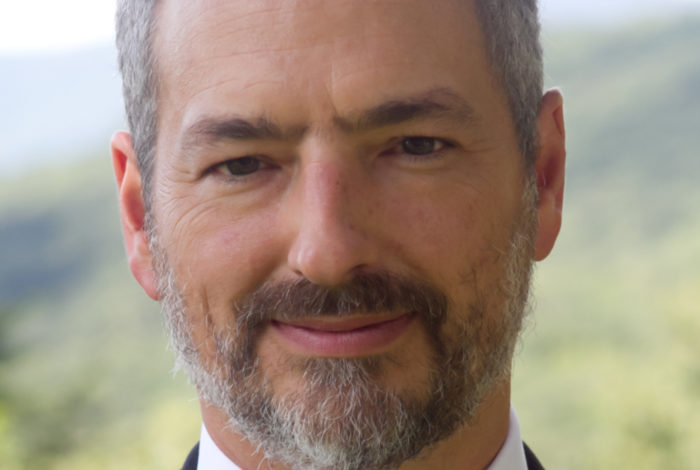
- Day 40
Celebrating You
Our movement to end prisoner rape is made up of survivors, donors, advocates, counselors, corrections officials — people from across the political spectrum who believe in safety and dignity for all. Your commitment to ensuring the dignity and human rights of people in detention has made all of our successes possible.
